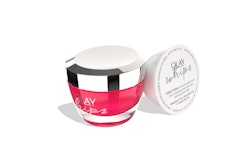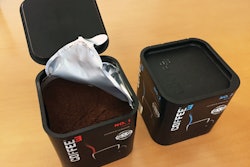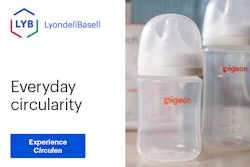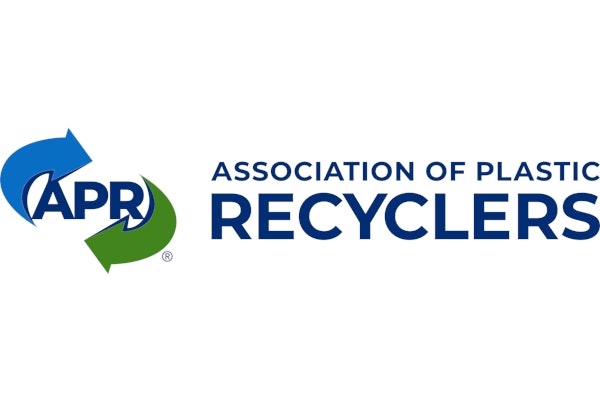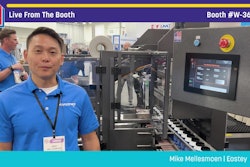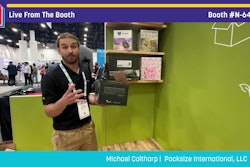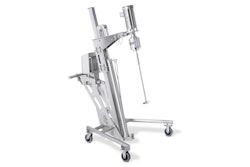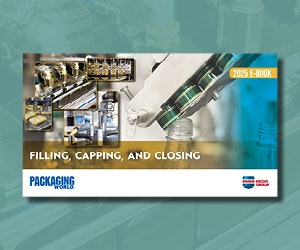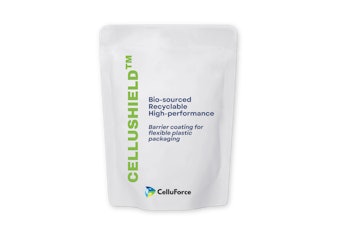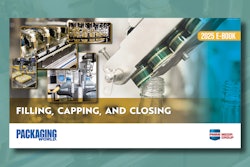A new system implemented at one of the U.K.’s National Health Service pathology labs that implements RFID label technology has demonstrated a significant savings in staff, packaging materials, and operational costs. At the Active & Intelligent Packaging Summit Americas event in New Jersey, Alastair Hanlon, Chief Commercial Officer for PragmatIC, shared details on the project led by Quality Hospital Solutions (QHS), which employs PragmatIC’s flexible, low-cost RFID labels to track each patient sample from a doctor’s office to the NHS’s Gateshead, U.K., lab.
According to Hanlon, the facility processes up to 10,000 diagnostic samples per day—e.g., blood, urine, etc.—using state-of-the-art, fully automated technology. However, the approximately U.S. $25 million lab was working at significantly reduced capacity. The limiting factor? The movement of the samples before they arrived at the lab. Challenges occurred at the doctor’s-office level and in transit that resulted in inefficiencies at the laboratory.
With the traditional transport system, a sample was put into a bag, paperwork was added, and both were placed into another bag that was then joined with other samples in a third bag. Said Hanlon, the system used a tremendous amount of plastic and paper that could not be recycled, due to strict regulations in the healthcare industry. Thus, the materials were incinerated.
Another issue at the office level was that some samples were logged into IT systems but never sent, resulting in confusion at the lab as to whether they were phantom samples or had been lost.
During transit, samples were sometimes lost or damaged, or the barcode on the sample would become damaged and unreadable. Given that every time a patient visits a doctor in the U.K. there is an automatic U.S. $60 fee (approximately), Hanlon noted that requiring a patient to see the doctor a second time to provide another sample becomes costly—not to mention inconvenient for the patient.
Then, at the lab level, there was a huge inefficiency with staffing, as the lab never knew what samples were going to be delivered. Thus, they would have all pathology specialists on hand when deliveries were made, in case they were needed.
Now, through the use of a reusable Laboratory Sample Storage System—custom-designed by QHS to hold a range of sample tube sizes for shipment—and PragmatIC’s flexible RFID labels, each patient sample is tracked from office to lab, with data accessible through a secure cloud IT system.
A key factor in the QHS project is PragmatIC’s ultra-thin, low-cost flexible integrated circuits, known as FlexICs, that extend electronics beyond the realm of conventional silicon integrated circuits (ICs). Explained Hanlon, the polyamide-based tags are thinner than a human hair, are flexible, robust, and durable, and include no rigid interconnection points. The FlexICs also feature a 90% lower IC cost than silicon and 80% lower tag cost than silicon.
Now, under the new smart label-enabled process at Gateshead:
1. A printed label embedded with an RFID tag is applied to the sample tube in the doctor’s office.
2. The sample and the sample pod (storage system) ID data are sent to a secure IT cloud system.
3. The sample pod ID is logged against the collection vehicle.
4. The collection time is noted against the samples—important for time-critical samples.
5. Laboratory staff are alerted to incoming samples, including the types of samples.
6. The sample pod is logged in, and the samples are batch-loaded onto automatic laboratory equipment.
According to Hanlon, the system has delivered tangible benefits. Among them, better utilization of staff at the lab; a reduction in the use of plastic bags, paper records, and associated clinical waste disposal; a reduction in the number of lost or delayed tests, which has reduced the need for patients to revisit their physicians; and a reduction in the time spent resolving issues with lost samples. In addition, it has increased operational efficiency at the lab, as information about what kinds of samples are in transit and tests required allows for better utilization of laboratory machinery, which results in increased laboratory utilization.
As Hanlon concluded, in England there are 105 hospitals currently providing pathology services, with a total of 1.12 billion tests per year. Currently there is a consolidation underway to create 29 pathology networks. Using the QHS solution with PragmatIC technology through the whole network represents the potential for $500 million in operational savings for the National Health Service.




